Two Conversations with Bruce Duffie
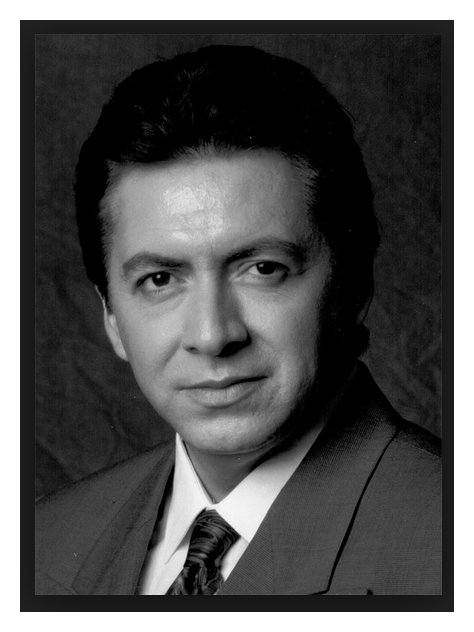

Born October 4, 1950 in Mexico City,
Mexico, tenor, (José) Francisco Araiza, was educated there. He studied
voice with Irma Gonzalez in the Conservatorio Nacional de Musica (where he
sang in its choir) and German repertory with Erika Kubacsek. Araiza made
his concert debut in Mexico City in 1969, where he subsequently appeared
for the first time in opera in 1970 as Jaquino. He went to Europe and took
master-classes with Richard Holm and Erik Werba at the Munich Musikhochschule
after having won the Bavarian Broadcasting Voice Competition. He also holds
a Business Administration degree from the University of Mexico City.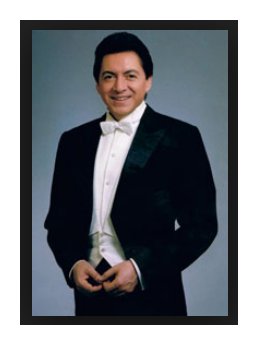 Following his studies, Francisco Araiza was a member of the Karlsruhe Opera
from 1974 to 1977. Since 1977 he has been a permanent member of the Zürich
Opera House. He has performed in all the main opera houses of the world and
has participated in all great international festivals.
Following his studies, Francisco Araiza was a member of the Karlsruhe Opera
from 1974 to 1977. Since 1977 he has been a permanent member of the Zürich
Opera House. He has performed in all the main opera houses of the world and
has participated in all great international festivals. From 1983 on, this most versatile singer who was already known as the best interpreters of Mozart and Rossini became a leading tenor of the Italian lirico-spinto, the French and lighter German repertory with roles like Edgardo, Alfredo, Duke of Mantua, Riccardo, Don Alvaro, Des Grieux, Faust, Hoffmann, Werther, Romeo, and Max. He sang Lohengrin in 1990 at the Teatro La Fenice in Venice and Walter von Stolzing in the Metropolitan Opera's new production in 1993. Besides his operatic engagement, Araiza is also a highly esteemed concert and Lieder-singer which can be shown by his nomination «Best musical event of the year 1988» for his Tokyo recital. He was named "Kammersänger of the Vienna State Opera" also in 1988. Francisco Araiza has worked with all the great conductors and stage directors like Karl Böhm, Herbert von Karajan, Carlo Maria Giulini, Sir Colin Davis, Sir Neville Marriner, James Levine, Claudio Abbado, Riccardo Muti, Giuseppe Patane, Wolfgang Sawallisch, Nikolaus Harnoncourt and Jean-Pierre Ponnelle, Harry Kupfer, August Everding, Otto Schenk, Giorgio Strehler, Franco Zeffirelli and Roman Polanski. His artistry has been documented in almost fifty recordings for labels including Philips, DGG, EMI, RCA, CBS, Teldec, Orfeo and Atlantis, as well as in lots of video productions for which he was awarded with the «Deutscher Schaliplattenpreis» and the «Orphée d'Or». An illustrated monograph called Voices of the World: Francisco Araiza was published by Atlantis in 1988 as well as his own chapter in the books named Great Interpreters published by Westermann and Divo published by Harper & Row. In 1992 the German television station ZDF presented a personal portrait with the title Francisco Araiza. I am a romantic. -- Throughout this page, names
which are links refer to my interviews elsewhere on this website. BD
|
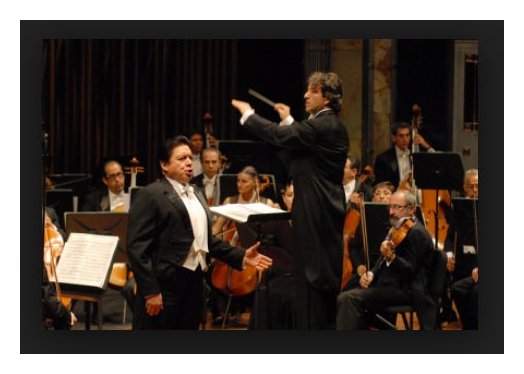 BD: Are you carrying on that tradition?
BD: Are you carrying on that tradition?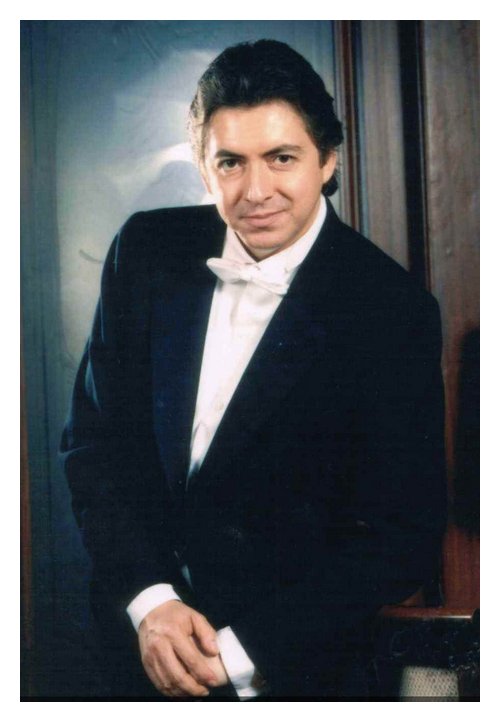 BD: So then you envision this for happening for
most operas?
BD: So then you envision this for happening for
most operas?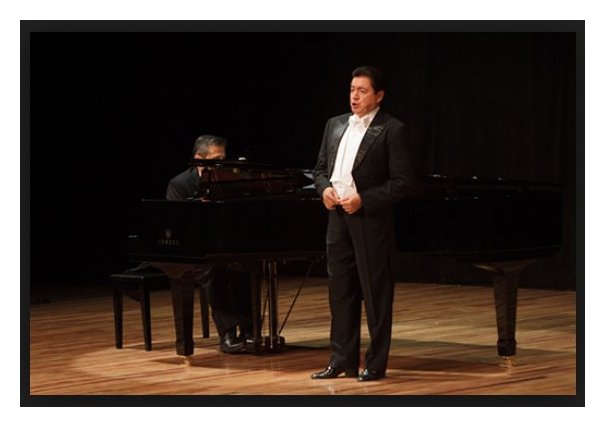 BD: So you would not accept to do a role on record
that you hadn’t sung?
BD: So you would not accept to do a role on record
that you hadn’t sung?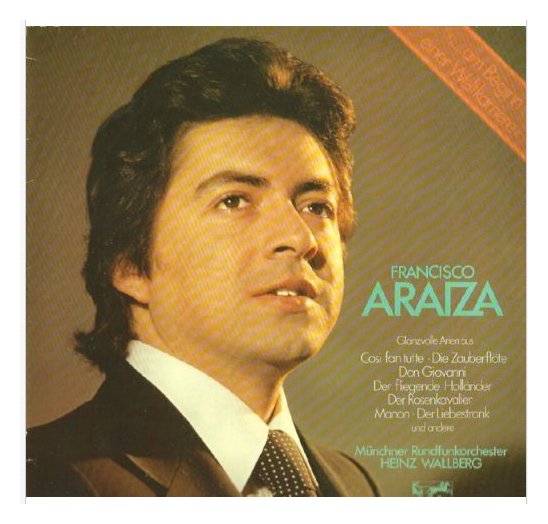 FA: Let’s say both of those reasons. First
of all I have never been a tenore leggiero.
I have always had a lyric tenor voice which already does fit this kind of
repertoire. But according to my technique and to my age, all the advice
from my teachers and specialists around me said I have to sing Mozart!
I made my début in 1970, and Fritz Wunderlich had died six year before.
For me he isn’t the classical Mozart tenor, because I don’t think that the
music of Mozart is sterile. It is really full of life and of erotic
character. So if you’re going to make a Mozart tenor, he has to be
first of all a real tenor, and not this kind of light castrato. That
is the kind of voice you’ve been used until then. So I understand why
the people try to move me immediately to sing Mozart, including my teachers
in Mexico. They brought me the German repertoire, taught me the German
roles and tried induce me into that. But in Mexico, a tenor like me
could have sung immediately Rodolfo and Faust and all these roles.
I was lucky enough to go to Europe, and to build up my whole Mozart repertory.
I immediately sang four or five big Mozart opera roles for a young tenor
FA: Let’s say both of those reasons. First
of all I have never been a tenore leggiero.
I have always had a lyric tenor voice which already does fit this kind of
repertoire. But according to my technique and to my age, all the advice
from my teachers and specialists around me said I have to sing Mozart!
I made my début in 1970, and Fritz Wunderlich had died six year before.
For me he isn’t the classical Mozart tenor, because I don’t think that the
music of Mozart is sterile. It is really full of life and of erotic
character. So if you’re going to make a Mozart tenor, he has to be
first of all a real tenor, and not this kind of light castrato. That
is the kind of voice you’ve been used until then. So I understand why
the people try to move me immediately to sing Mozart, including my teachers
in Mexico. They brought me the German repertoire, taught me the German
roles and tried induce me into that. But in Mexico, a tenor like me
could have sung immediately Rodolfo and Faust and all these roles.
I was lucky enough to go to Europe, and to build up my whole Mozart repertory.
I immediately sang four or five big Mozart opera roles for a young tenor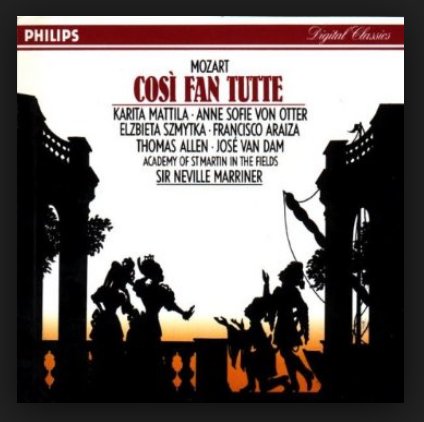
See my interviews with Karita Mattila, Thomas Allen, and José van Dam 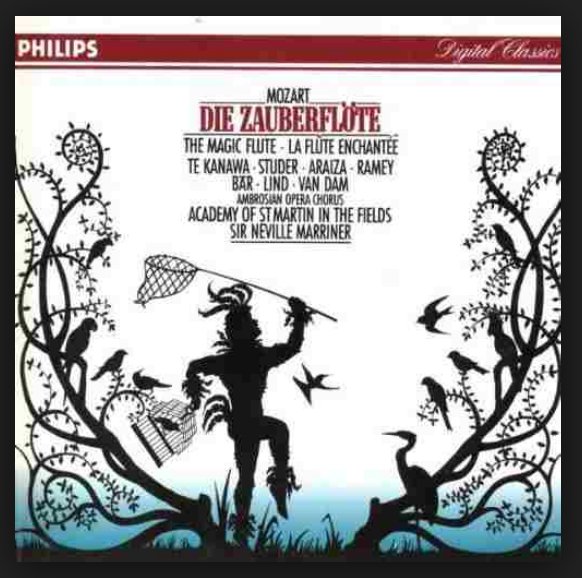
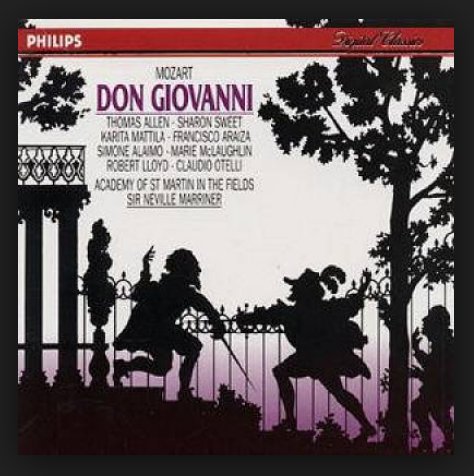
To read my Interviews with Marie McLaughlin and Robert Lloyd 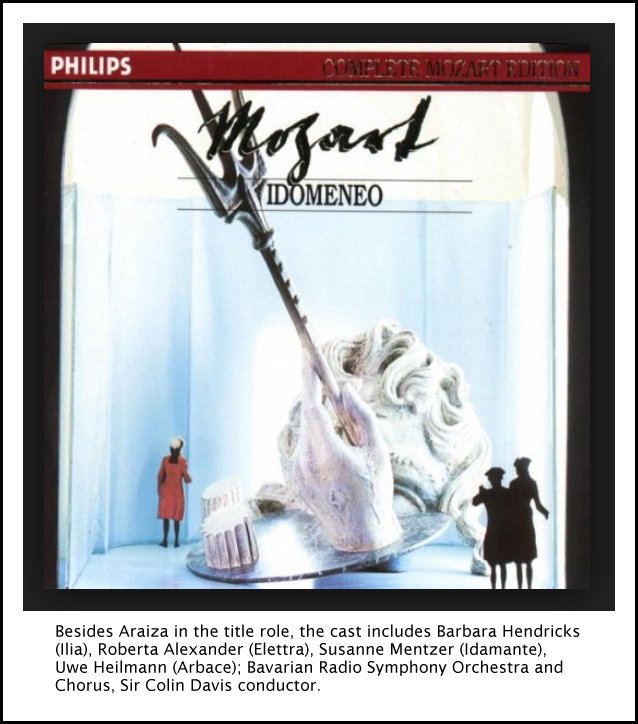
See my interviews with Susanne Mentzer 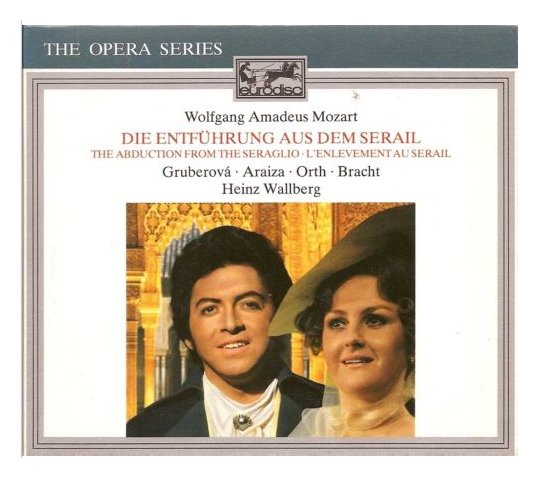
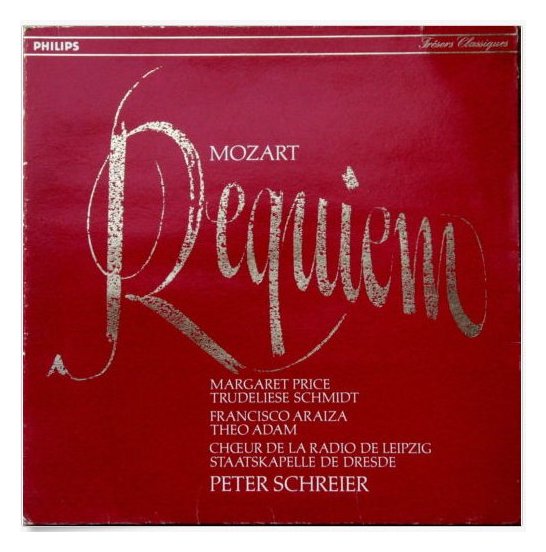
See my interview with Margaret Price |
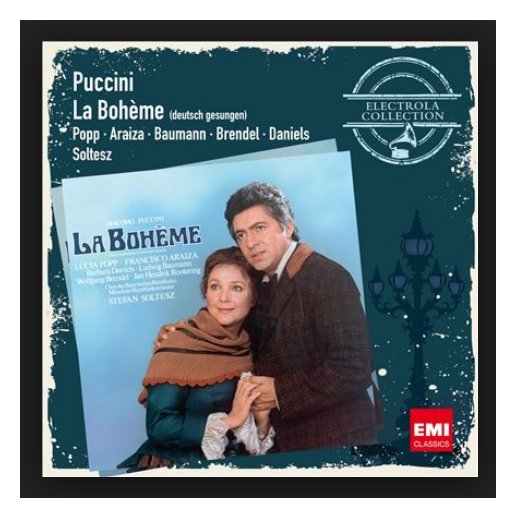 FA: Most of the operas deal with the same thematics
every time. They present more extroverted feelings of the human person
— love, hate, jealousy, and instinct of any kind. So they’re
characteristics of the human being. Now, of course, they’re differences
used to approach a woman or girl than at that time, but you can move all
these things into the main theme. Love is love, so it doesn’t matter
if it is a Prince is falling in love with Cinderella, or it could be Rodolfo
with Mimì as well. It could be maybe not such a tragic love,
but you have to find the main thing to carry and develop. It’s always
a magic moment where it will jump out, and then you have the chance to really
build it up.
FA: Most of the operas deal with the same thematics
every time. They present more extroverted feelings of the human person
— love, hate, jealousy, and instinct of any kind. So they’re
characteristics of the human being. Now, of course, they’re differences
used to approach a woman or girl than at that time, but you can move all
these things into the main theme. Love is love, so it doesn’t matter
if it is a Prince is falling in love with Cinderella, or it could be Rodolfo
with Mimì as well. It could be maybe not such a tragic love,
but you have to find the main thing to carry and develop. It’s always
a magic moment where it will jump out, and then you have the chance to really
build it up.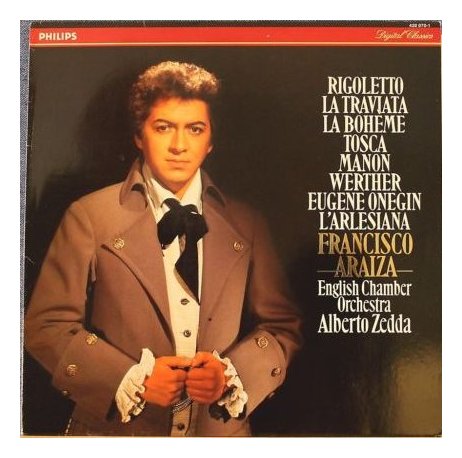 BD: They leave it to the interpreters to fill in
the gaps?
BD: They leave it to the interpreters to fill in
the gaps? 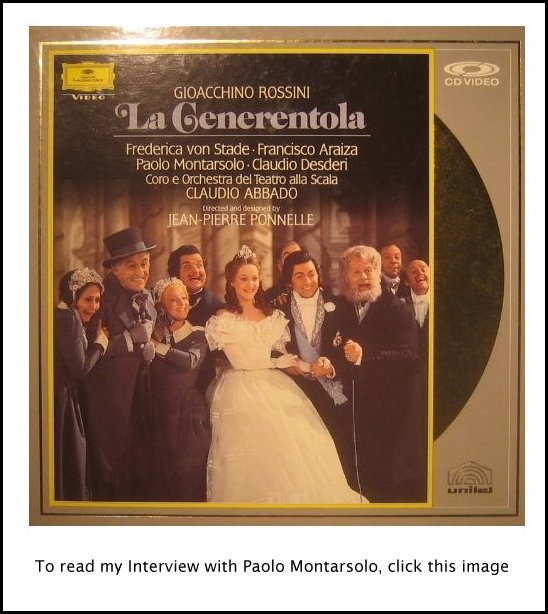 FA: It depends if the wall is made of projecting
material, but it’s other stuff it swallows the voice up. But there
are productions that have the purpose of helping the acoustics, especially
the productions of Jean-Pierre Ponnelle. All of them have very, very
friendly acoustic. Also they are beautiful.
FA: It depends if the wall is made of projecting
material, but it’s other stuff it swallows the voice up. But there
are productions that have the purpose of helping the acoustics, especially
the productions of Jean-Pierre Ponnelle. All of them have very, very
friendly acoustic. Also they are beautiful. FA: Not yet. Always the more that I have
occupied myself with the part that came early, the better. I say that
because I have sung my whole life the tenor part of Verdi Requiem. I had my first Verdi Requiem
ten years ago or so, and while I don’t hate the piece, it is difficult for
the breathing and building of the phrases. The orchestra comes in and
I open the voice, so it’s a very tough part. But year after year it
became easier. Now it’s a part of me and I don’t need so many places
to breathe as ten years ago or eight or seven years ago. I can sing
a phrase normally without any breathing. So you achieve more and can
develop into it.
FA: Not yet. Always the more that I have
occupied myself with the part that came early, the better. I say that
because I have sung my whole life the tenor part of Verdi Requiem. I had my first Verdi Requiem
ten years ago or so, and while I don’t hate the piece, it is difficult for
the breathing and building of the phrases. The orchestra comes in and
I open the voice, so it’s a very tough part. But year after year it
became easier. Now it’s a part of me and I don’t need so many places
to breathe as ten years ago or eight or seven years ago. I can sing
a phrase normally without any breathing. So you achieve more and can
develop into it.  FA: I find Alfredo very, very exciting part.
FA: I find Alfredo very, very exciting part.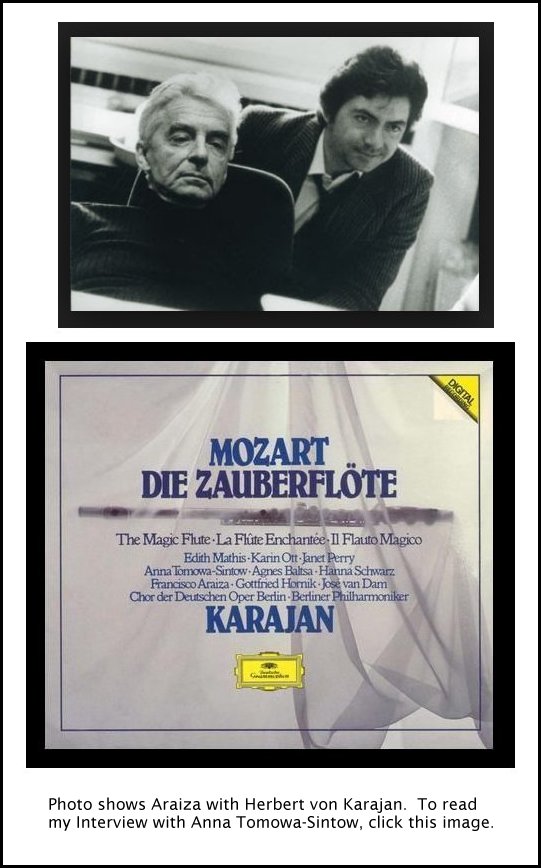 FA: In Zurich and in Vienna and Munich and other
cities there is a big program, a Magic Flute
for children.
FA: In Zurich and in Vienna and Munich and other
cities there is a big program, a Magic Flute
for children.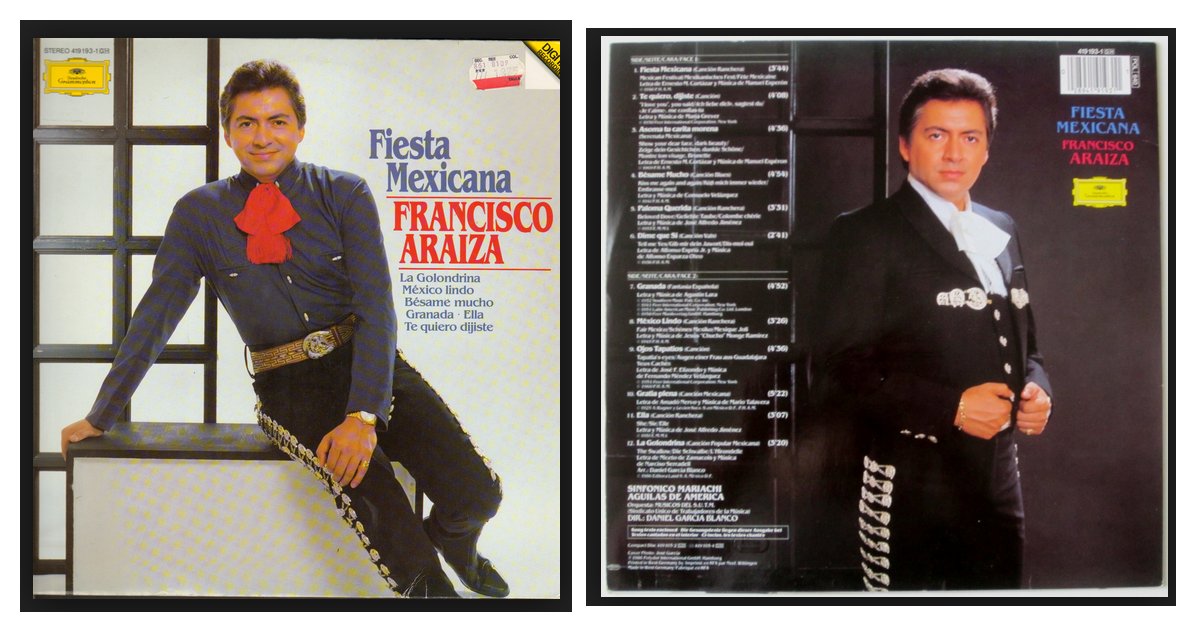
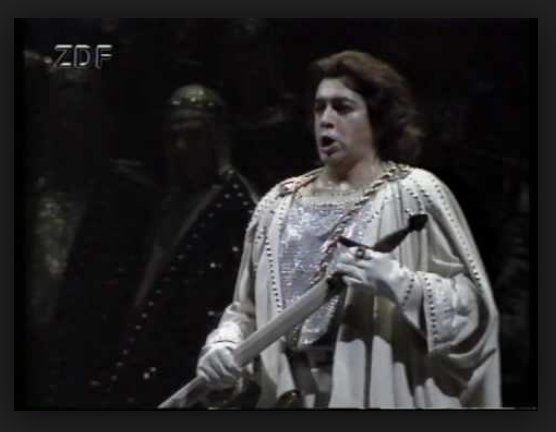 FA: Yes, it is indeed. Lohengrin was my actual
goal of the vocal development, and I have put my concentration and my energies
in arriving there without damage in the voice by going too far into heavy
parts too soon or too much. It was the final test to see how the development
was working, and the Lohengrin last June in Venice I was really very, very
excited. But I was so lucky that I was part of a great, great production
from Pier Luigi Pizzi [shown in a video-capture
at right], and I was working with a conductor that for me is one of
the geniuses of the younger generation, a German named Christian Thielemann.
From the very first rehearsal we had this understanding that we were going
to do new things, and to treat the whole opera as we could do a Lied, given the great, great importance
to every word and the phrasing of the part and the different moods and situations,
the differentiation in attacks, etc., etc. It was for me an incredible
surprise to see how it worked.
FA: Yes, it is indeed. Lohengrin was my actual
goal of the vocal development, and I have put my concentration and my energies
in arriving there without damage in the voice by going too far into heavy
parts too soon or too much. It was the final test to see how the development
was working, and the Lohengrin last June in Venice I was really very, very
excited. But I was so lucky that I was part of a great, great production
from Pier Luigi Pizzi [shown in a video-capture
at right], and I was working with a conductor that for me is one of
the geniuses of the younger generation, a German named Christian Thielemann.
From the very first rehearsal we had this understanding that we were going
to do new things, and to treat the whole opera as we could do a Lied, given the great, great importance
to every word and the phrasing of the part and the different moods and situations,
the differentiation in attacks, etc., etc. It was for me an incredible
surprise to see how it worked.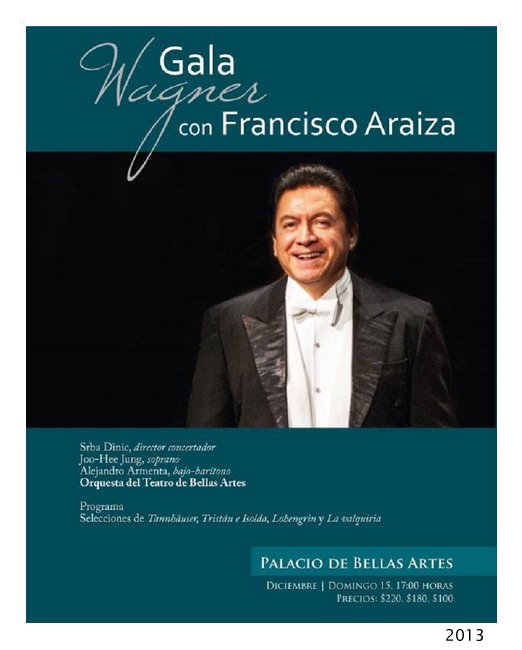 BD: For this production did they pick other voices
which were similar in weight to yours?
BD: For this production did they pick other voices
which were similar in weight to yours?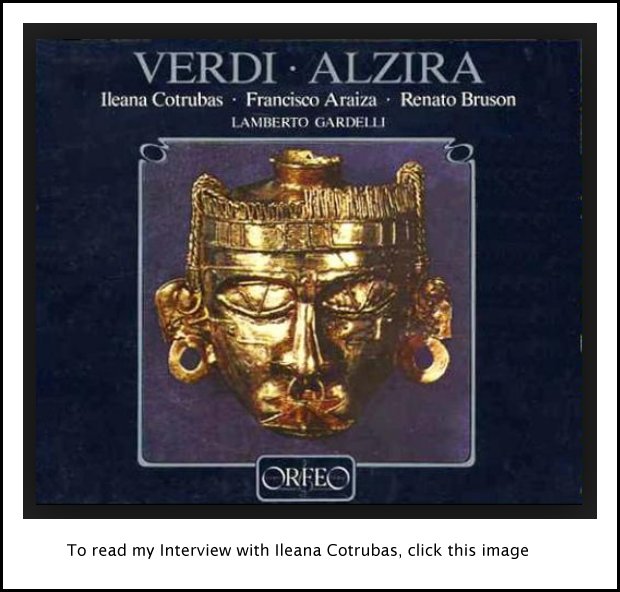 BD: Were you able to readjust the voice for
Verdi?
BD: Were you able to readjust the voice for
Verdi?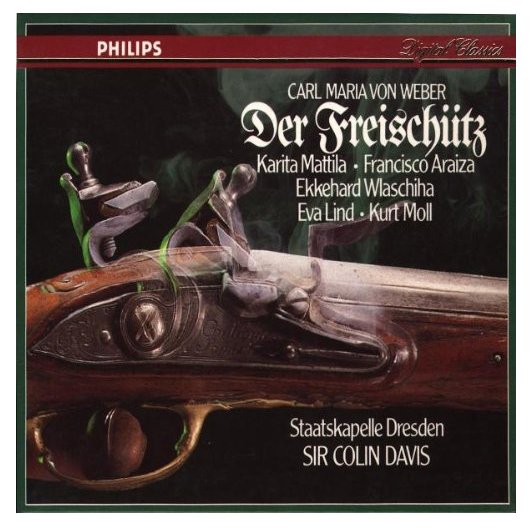 BD: Even though it’s very short by comparison?
BD: Even though it’s very short by comparison?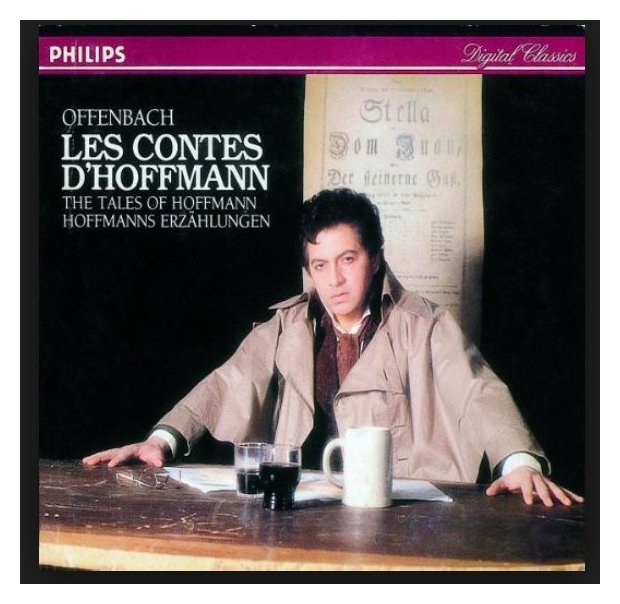 FA: Exactly. It is always there and always
ascending, and uses all the dynamics. It’s always this way and all
in this range. It becomes very, very tough, so for that reason this
part is very difficult. As you well know, when a tenor achieves a good
management of his break range, then he can sing. When he has a good
top, then he really manages every part, but that’s the most difficult thing
to learn.
FA: Exactly. It is always there and always
ascending, and uses all the dynamics. It’s always this way and all
in this range. It becomes very, very tough, so for that reason this
part is very difficult. As you well know, when a tenor achieves a good
management of his break range, then he can sing. When he has a good
top, then he really manages every part, but that’s the most difficult thing
to learn.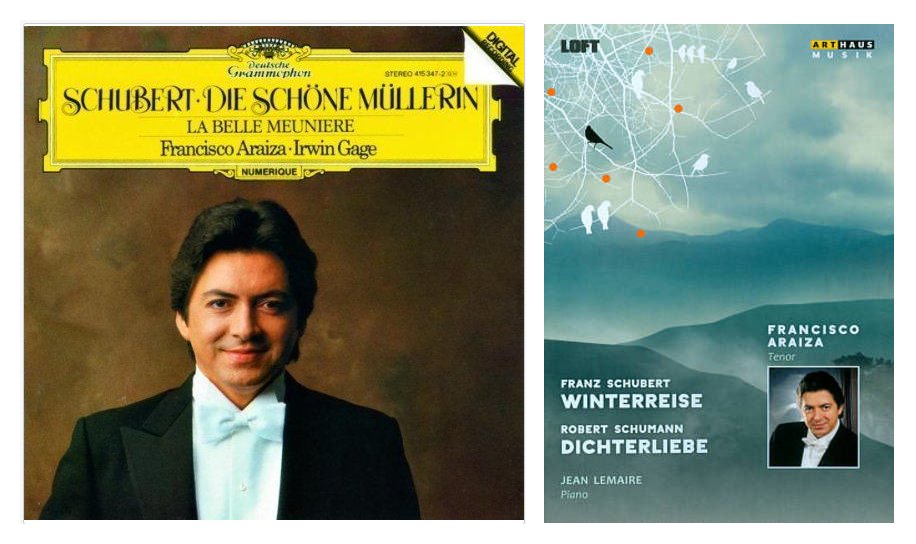
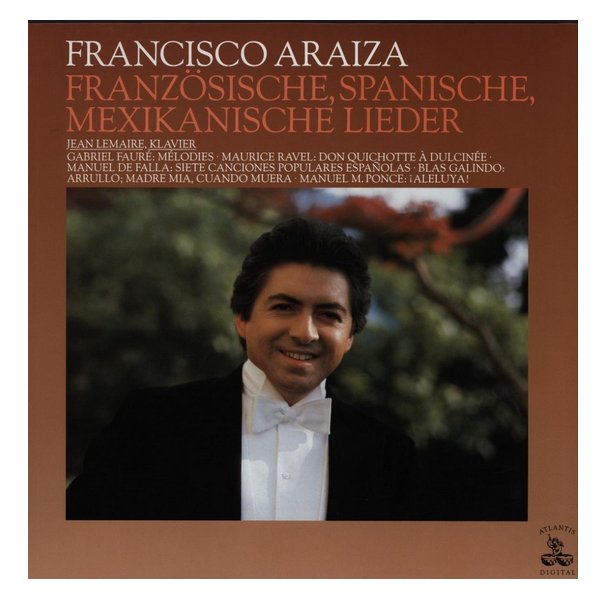 BD: But you still do it.
BD: But you still do it.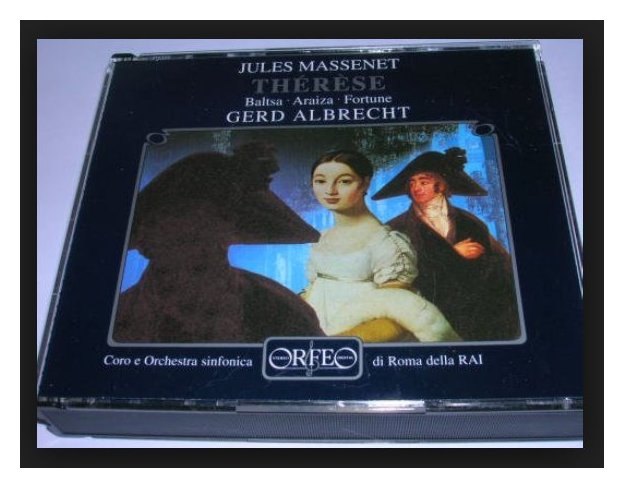 BD: Do you enjoy singing the Massenet?
BD: Do you enjoy singing the Massenet?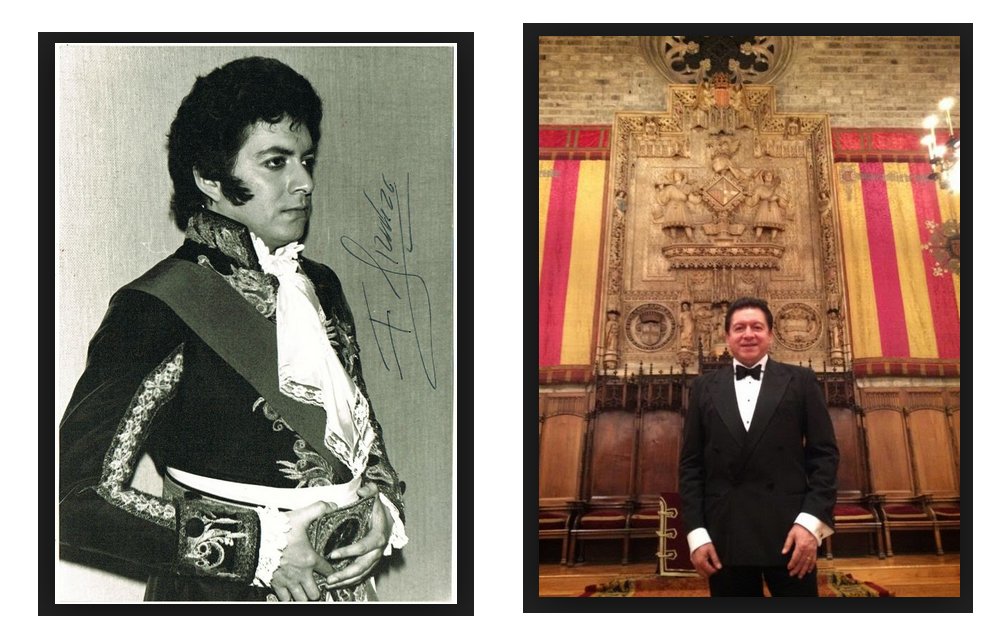
© 1984 & 1990 Bruce Duffie
These conversations were recorded in Chicago on November 24, 1984, and December 6, 1990. Portions were broadcast on WNIB in 1987, 1990, 1992, 1995, 1998, and 2000. A part of the first interview was transcribed and published in Nit & Wit Magazine in September, 1986. This full transcription was made in 2015, and posted on this website at that time. My thanks to British soprano Una Barry for her help in preparing this website presentation.
To see a full list (with links) of interviews which have been transcribed and posted on this website, click here.
Award - winning broadcaster Bruce Duffie was with WNIB, Classical 97 in Chicago from 1975 until its final moment as a classical station in February of 2001. His interviews have also appeared in various magazines and journals since 1980, and he now continues his broadcast series on WNUR-FM, as well as on Contemporary Classical Internet Radio.
You are invited to visit his website for more information about his work, including selected transcripts of other interviews, plus a full list of his guests. He would also like to call your attention to the photos and information about his grandfather, who was a pioneer in the automotive field more than a century ago. You may also send him E-Mail with comments, questions and suggestions.